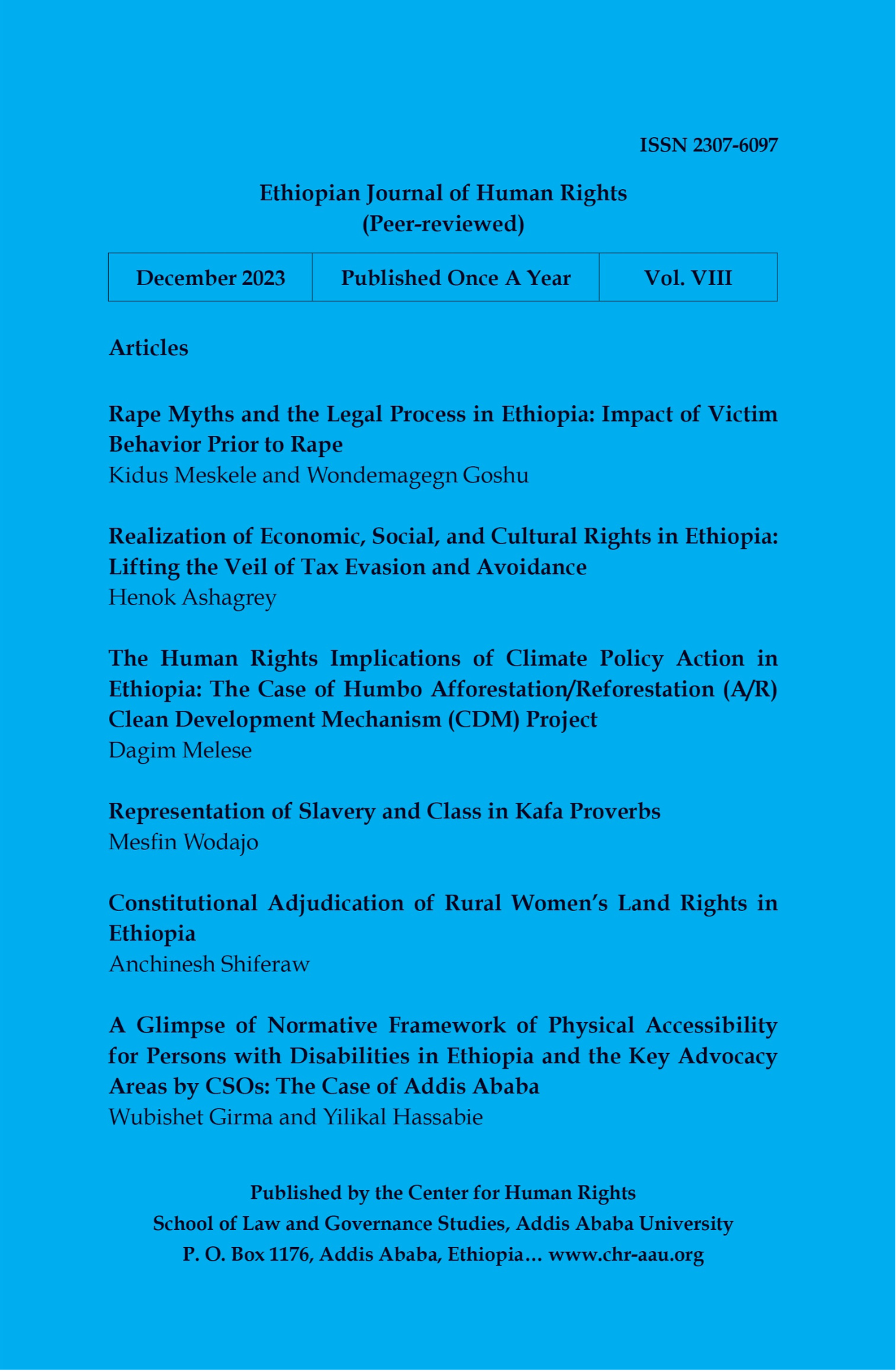A Glimpse of Normative Framework of Physical Accessibility for Persons with Disabilities in Ethiopia and the Key Advocacy Areas by CSOs: The Case of Addis Ababa
Abstract
The main objective of this article is to make an overview of the existing normative standards and norms on the right to physical accessibility of Persons with disability (PWD) and the practical challenges faced by them in the built environment in Addis Ababa. Besides, the article identifies key advocacy areas by civil society organizations (CSOs) to address both the legal and practical challenges which PWDs encounter in their day to day lives. Desk review, key informant interviews, and observations were employed for data collection. The findings show that the majority of public buildings, hospitals, schools, workplaces, and the transport system including pavements and sidewalks of Addis Ababa are inaccessible for PWDs, which is mainly attributed to the absence of exclusively enacted accessibility legislation. The existing building laws neither are insufficient to comprehensively address accessibility issues nor are they properly implemented. To mitigate the challenges, the article suggested revision of laws, commitment to their implementation, and the advocacy role of CSOs in general and organizations of peoples with disabilities (OPDs) in particular. The changes are also required in the areas of budget allocation, access to justice and new institutional setup for disability affairs.
Keywords: disability, physical accessibility, CSOs/OPDs, advocacy interventions
237 Wubshet Girma , Ethiopian Human Rights Commission
238 Yilkal Hassabie Wudneh is a Ph.D. student at Center for Human Rights, Addis Ababa University

